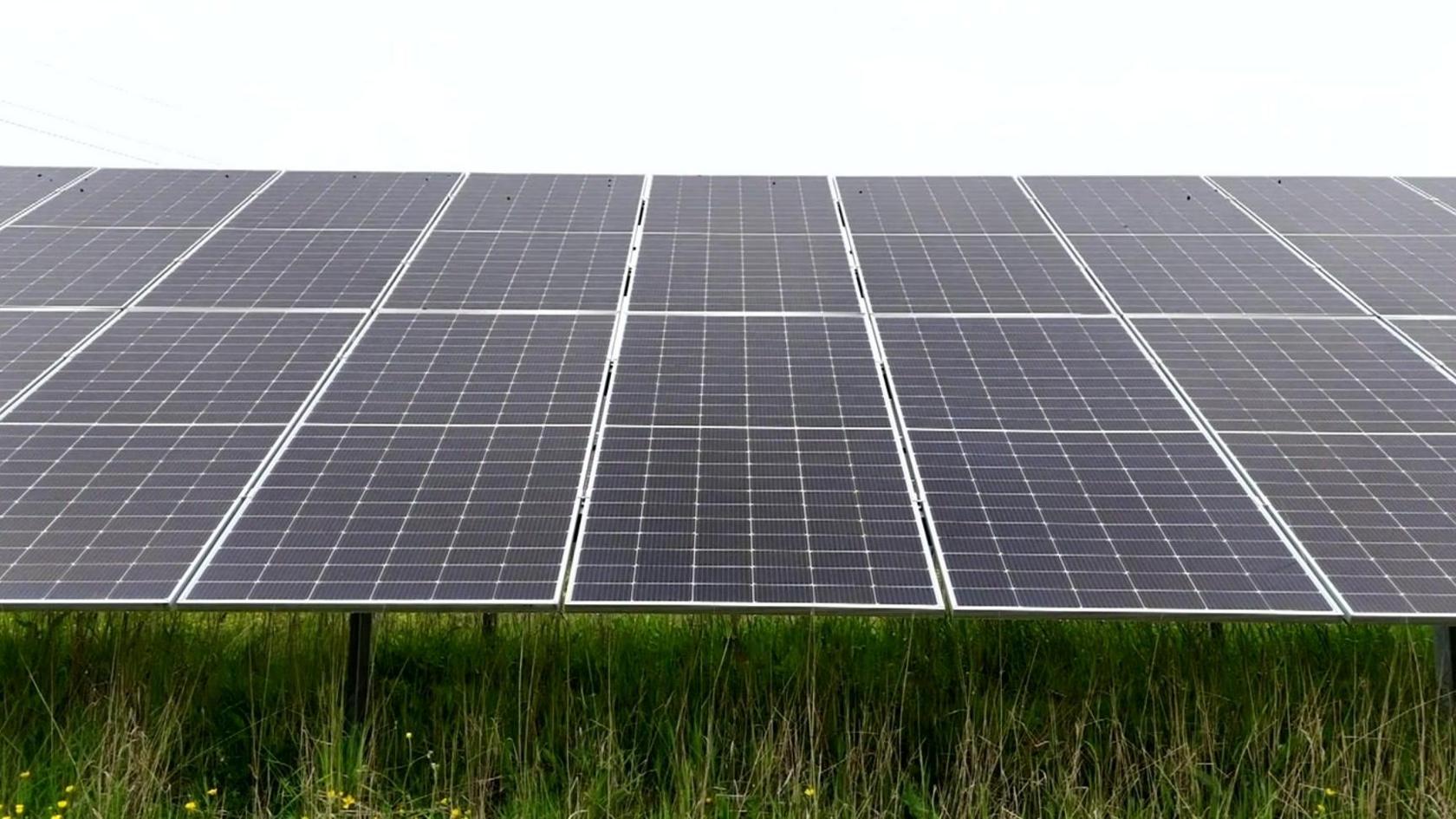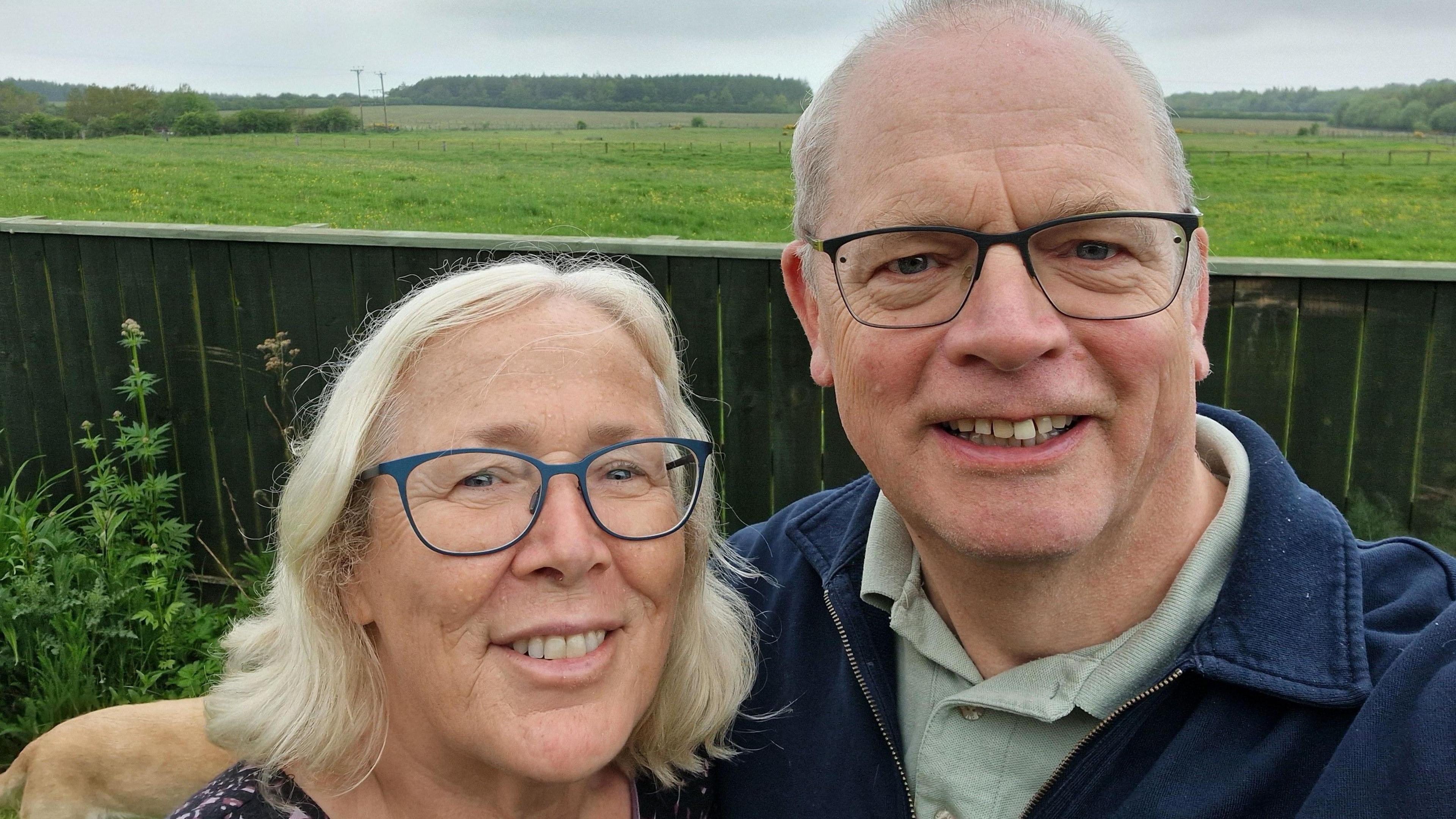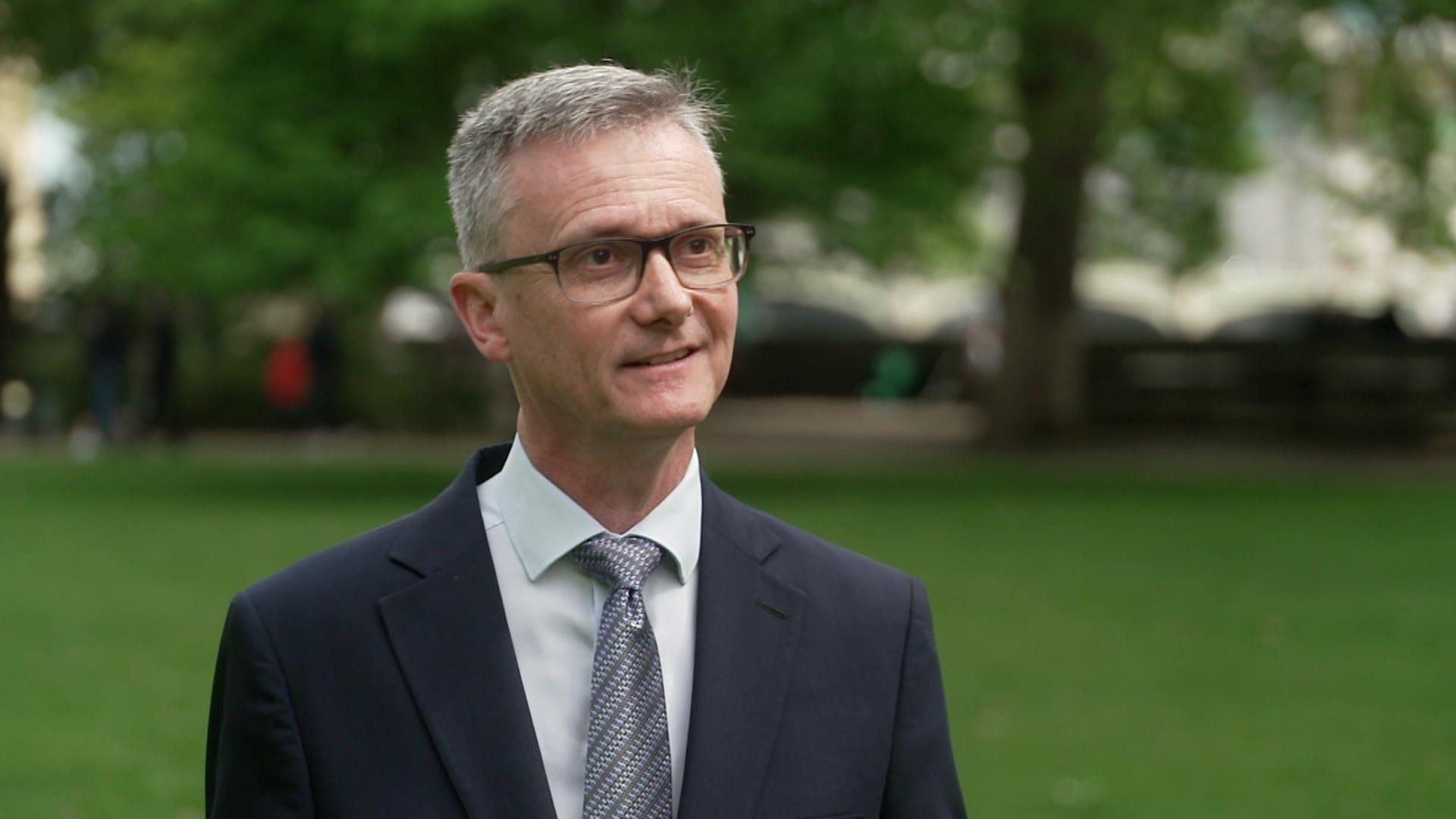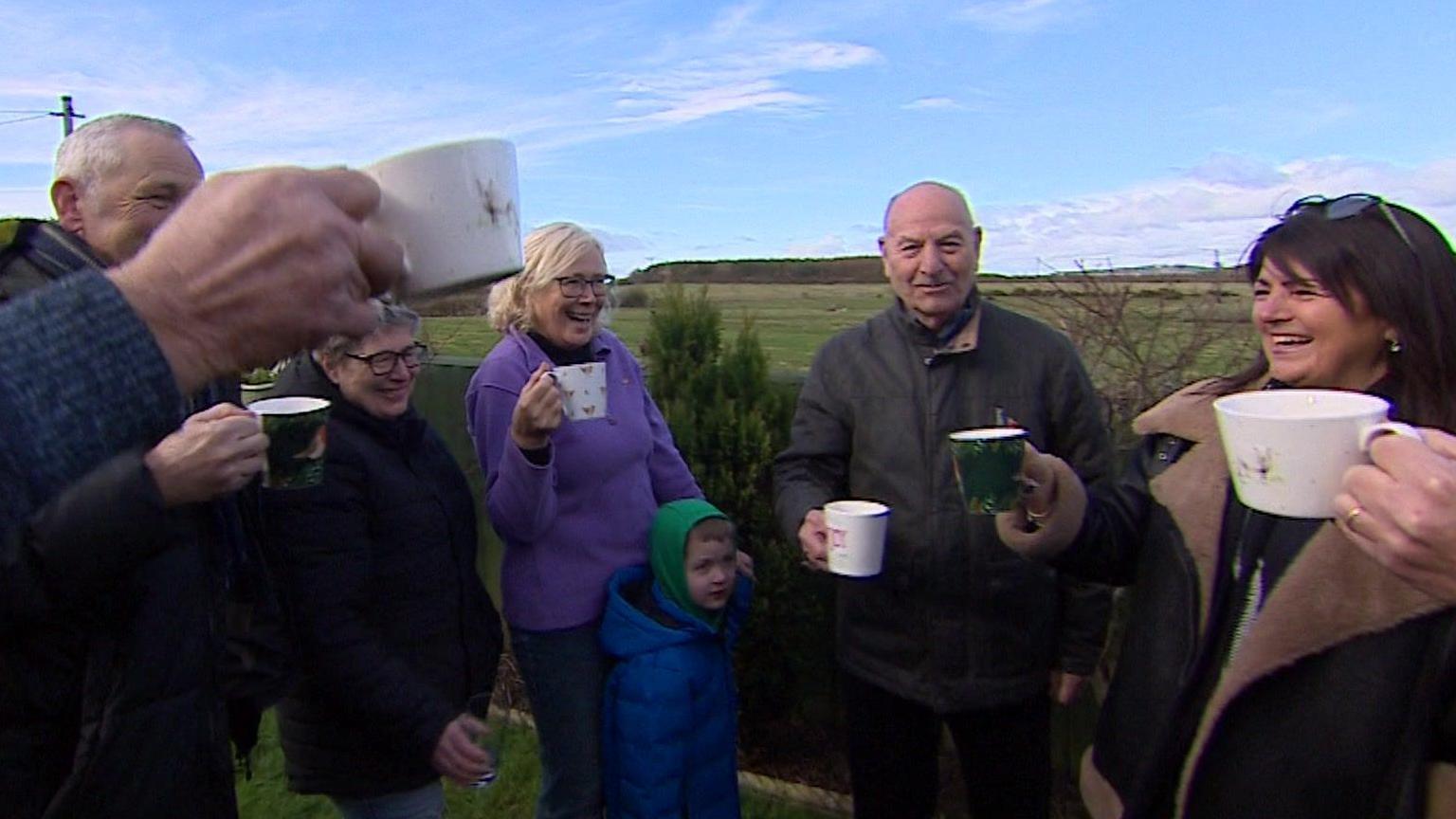Solar farms 'avoid quality farmland' - trade group

There are plans for solar farms in several parts of County Durham
- Published
Solar farms are only built on good quality farmland when "absolutely needed for the connection to the grid", a trade association has insisted.
Plans in County Durham have encountered controversy, in the week the government announced it was planning to tighten rules on where they could be built.
A planning application for a major solar farm in Burnhope was quashed after a resident, who said the land should be used to produce food, won a legal challenge against it.
Solar Energy UK, which represents solar farm businesses, said the industry's targets for solar by 2035 only require a "very tiny proportion of the UK's land".
Burnhope is one of several areas in County Durham where there are plans to build a major solar farm.
Lightsource bp said its farm would cover 215 acres and generate 49.9MW of electricity, which would be enough to power nearly 14,000 homes for a year.
It said it was "disappointed" by the decision but respected the court’s decision.
The plans are currently on hold.

Heather and Ian Galloway's home overlooks the field where the proposed Burnhope solar farm would be
Burnhope resident Ian Galloway won a legal challenge against the solar farm.
Mr Galloway said: "They're industrialising the environment, they'll destroy the soil, it'll be a nightmare."
His wife Heather said the plans were "too big" and "in the wrong place".
She added: "Solar power is one way to generate electricity but you can put it in brownfield sites, this [Burnhope] is beautiful green and if we lose that, it's not coming back."
A spokesperson for Lightsource bp said it had "worked hard to tailor the design to the environment and to mitigate any concerns".
"The land selected for the Burnhope solar project includes brownfield land that was previous an open-cast mine. The landowners report that the productivity of the land has been exceedingly low."

Chris Hewett from Solar Energy UK said solar farms could help protect food security
Chris Hewett, from Solar Energy UK, said industry targets for solar by 2035 will only require a "very tiny proportion of the UK's land".
"In fact, in County Durham, we're only looking at 0.03% of total land area, so it's a very small amount," he added.
Last week, the energy security secretary told Parliament that with growing geopolitical tension, the best agricultural land must be protected for food security, external.
Mr Hewett insisted the solar industry supported food security.
"If you're a farmer and you have solar on your land, that gives you an extra revenue stream which often allows you to maintain investing in food production in other parts of your land," he added.
Follow BBC North East on X (formerly Twitter), external, Facebook, external and Instagram, external. Send your story ideas to northeastandcumbria@bbc.co.uk
Related topics
- Published25 February 2024

- Published9 May 2024